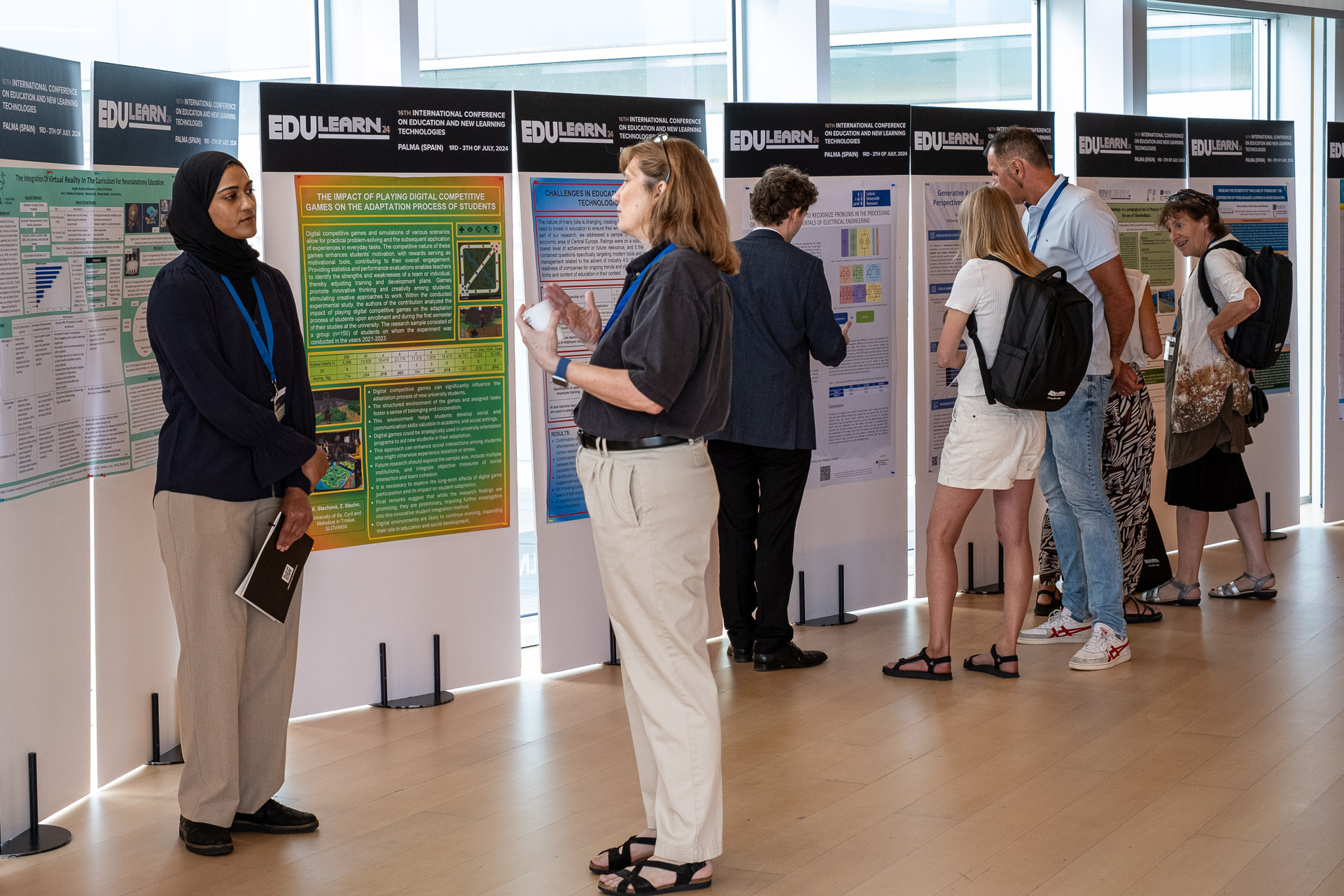Topics
The scope of EDULEARN26 includes the following topics:
Educational Trends and Experiences
Education Practice Trends and Issues
Enhancing learning and the undergraduate experience
Early Childhood Education
Primary and Secondary Education
Undergraduate Education
Post-graduate Education
Vocational Training
Life-long learning
Educating Individuals with Disabilities
STEM Education Experiences
Language Learning Innovations
New Experiences for Curriculum Design
Instructional Design and Curriculum Priorities
Accreditation and Quality in Education
Pedagogical Methods and Innovations
Pedagogical Innovations
Flipped Learning
Assessment of Student Learning
Informal Learning
Active and Experiential Learning
Collaborative Problem and Project-based Learning
Game-based Learning and Gamification
Personalized Learning
Tutoring and Coaching
Neuroscience in Education
Next Generation Classroom & Learning Space Design
Creativity and Design Thinking
Critical Thinking and Problem Solving
21st Century Skills
Teacher Training and Educational Management
Pre-service Teacher Experiences
In-service Teacher Training
Professional Development of Teachers
Leadership and Educational Management
ICT Skills Development
Research: New Trends and Experiences
Academic Research Projects
Research on Technology in Education
Links between Education and Research
Research Methodologies
Research Centres and Programmes
New Challenges in Education and International Cooperation
New challenges for the Higher Education Area
Students and Teaching Staff Exchange Programmes
Erasmus+ Programme Experiences
International Projects
New experiences of International Cooperation
Joint Education and Research Programmes
University Networks and Alliances
Global Issues in Education and Research
Education, Research and Globalization
Cultural Diversity and Multicultural Inclusion
Bullying Prevention and Awareness
Organizational, Legal and Financial Aspects
Digital Divide and Technological Exclusion
Gender and Equality in Education
Barriers to Learning (ethnicity, age, etc.)
Ethical Issues in Education
Inclusion and Lifespan Transition Support
Student Support and Motivation
Service-Learning and Community Engagement
Education for Sustainability
University-Industry Cooperation
University/Industry Experiences
Workplace Learning
Work Employability
Entrepreneurship Education
University/Industry/Government partnership
Technology in Teaching and Learning
e-Learning Experiences
m-Learning: Mobile Technologies and Experiences
Blended Learning and Flipped Classroom
Advanced Classroom Applications and Technologies
Online/Virtual Laboratories
Learning Management Systems (LMS)
Virtual Learning Environments (VLE)
Personal Learning Environments (PLEs)
Online Assessment
e-Tutoring
Intelligent Tutoring Systems (ITS)
Technology-Enhanced Learning
ICT and Digital Skills
Inclusive Learning and Assistive Technologies
Emerging Technologies in Education
Impact of AI on Education
AI, Chatbots & Robots
Web 3.0
Social Media and Social Networks
Educational/Serious Games and Software
Virtual Reality and 3D Applications
Augmented Reality
Simulation and Immersive Technologies
Videos for Learning & Multimedia-based Education
Coding and Educational Robotics
Learning Analytics
Distance Learning in Times of Crisis
Face-to-face vs Remote Learning
Digital Technologies and Resources for Learning
Rethinking Assessment
Teacher Training and Support
Leadership and Management in Uncertain Times
Hybrid and HyFlex Teaching
Strategies to Minimize Educational Disruption
Ensuring Students' and Teachers' Well-being
Lessons Learned from the COVID-19 Pandemic
E-Content Development and Open Educational Resources
Digital Libraries and Repositories
Open Universities and Distance Education
Massive Open Online Courses (MOOC)
Open Educational Resources
User-Generated Content
Plagiarism and Intellectual Property Rights
Knowledge Management
